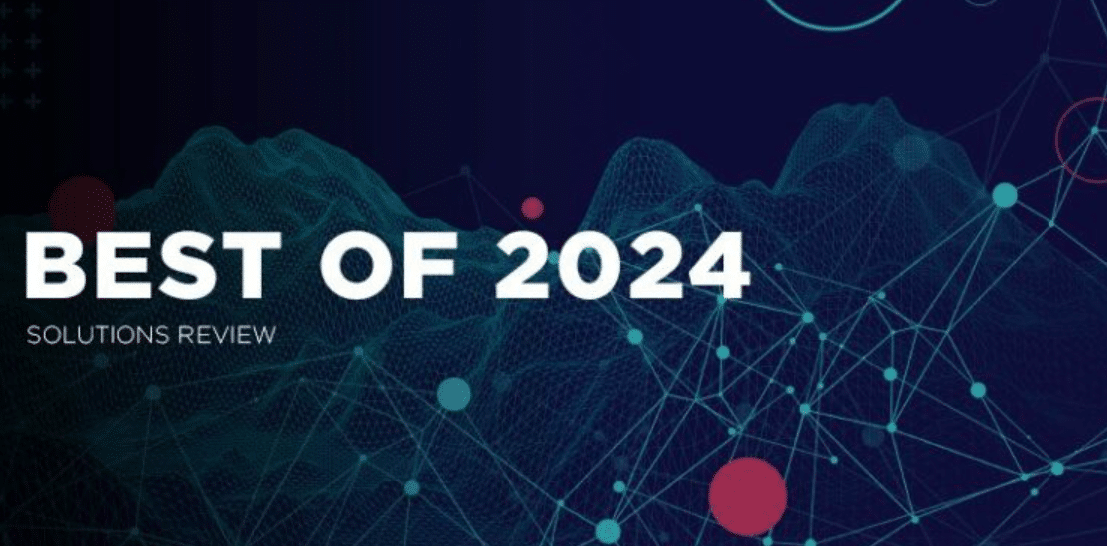As American enterprises continue to evolve in a rapidly changing global market, the role of technology in driving business success has never been more critical. Among the most impactful technologies are Enterprise Resource Planning (ERP) systems, which have become essential tools for businesses of all sizes. In 2024, several ERP solutions are leading the charge, transforming how American enterprises operate, grow, and compete.
The Importance of ERP in Modern American Businesses
ERP systems are the backbone of modern business operations, integrating various functions such as finance, supply chain, human resources, and customer relationship management into a single cohesive platform. This integration is vital for businesses seeking to enhance efficiency, reduce costs, and improve overall performance. In the context of American enterprises, ERP systems are particularly important for staying competitive in a market that demands agility, innovation, and data-driven decision-making.
How ERP Solutions Have Evolved
Over the years, ERP solutions have evolved from basic process automation tools to sophisticated platforms that leverage the latest technologies such as artificial intelligence, machine learning, and cloud computing. In 2024, these advancements have made ERP systems more powerful, flexible, and accessible, allowing American enterprises to achieve new levels of efficiency and growth.
Leading ERP Solutions in 2024
SAP S/4HANA
SAP S/4HANA is one of the most widely adopted ERP solutions among American enterprises, known for its robust functionality and real-time data processing capabilities. Built on the SAP HANA in-memory database, S/4HANA offers advanced analytics, process automation, and industry-specific modules that cater to the unique needs of various sectors. Its ability to integrate with other SAP solutions and third-party applications makes it a versatile choice for large and medium-sized businesses.
Oracle NetSuite
Oracle NetSuite is a leading cloud-based ERP solution that is particularly popular among small to mid-sized American businesses. Known for its flexibility and ease of use, NetSuite provides a comprehensive suite of applications covering financial management, CRM, e-commerce, and more. Its cloud-based architecture allows for seamless updates and scalability, making it an ideal solution for growing businesses.
Microsoft Dynamics 365
Microsoft Dynamics 365 combines ERP and CRM capabilities into a single, integrated platform, offering businesses a unified view of their operations. With strong AI and machine learning features, Dynamics 365 enables predictive analytics and data-driven decision-making. Its tight integration with other Microsoft products, such as Office 365 and Azure, makes it a popular choice for enterprises already invested in the Microsoft ecosystem.
Infor CloudSuite
Infor CloudSuite is an industry-specific ERP solution that caters to sectors such as manufacturing, healthcare, and retail. Its cloud-based design allows businesses to leverage advanced analytics, AI, and IoT capabilities to optimize their operations. Infor’s emphasis on industry-specific functionality ensures that enterprises get the tools they need to address their unique challenges and opportunities.
Epicor ERP
Epicor ERP is a highly customizable solution designed for manufacturing, distribution, retail, and service industries. It offers robust features for supply chain management, production planning, and financial management. Epicor’s focus on scalability and flexibility makes it a suitable choice for American enterprises looking to grow and adapt in a dynamic market.
Key Features of Top ERP Systems
Real-Time Data Analytics
One of the defining features of top ERP systems in 2024 is their ability to provide real-time data analytics. This capability allows businesses to monitor operations, track performance, and make informed decisions based on up-to-the-minute information. Real-time analytics also enable predictive insights, helping companies anticipate trends and respond proactively to market changes.
AI and Machine Learning Integration
AI and machine learning are becoming integral to ERP systems, enhancing their ability to automate processes, analyze large datasets, and deliver actionable insights. These technologies enable businesses to optimize their operations, reduce manual workloads, and improve decision-making. For example, AI-driven demand forecasting can help manufacturers optimize inventory levels, while machine learning algorithms can identify patterns in customer behavior.
Cloud and Mobile Accessibility
The shift towards cloud-based ERP solutions has made these systems more accessible and scalable. Cloud ERP allows businesses to access their data and applications from anywhere with an internet connection, making it easier to support remote work and global operations. Mobile accessibility is also a key feature, enabling employees to manage tasks, approve workflows, and access real-time data from their smartphones or tablets.
Industry-Specific Capabilities
Top ERP systems offer industry-specific modules that cater to the unique needs of different sectors. These specialized features help businesses address their specific challenges and requirements, whether it’s compliance with healthcare regulations, managing complex supply chains in manufacturing, or optimizing inventory in retail.
Scalability and Customization
Scalability and customization are critical features of modern ERP systems, allowing businesses to tailor the software to their specific needs and scale it as they grow. Whether adding new users, expanding into new markets, or integrating additional modules, top ERP solutions are designed to grow with the business, ensuring long-term value and flexibility.
How These ERP Solutions are Transforming American Enterprises
Enhancing Operational Efficiency
ERP systems are transforming American enterprises by streamlining operations and enhancing efficiency. By integrating various business functions into a single platform, ERP systems eliminate data silos, reduce manual processes, and improve overall productivity. This operational efficiency translates into cost savings, faster time-to-market, and a stronger competitive edge.
Facilitating Data-Driven Decision Making
The ability to make data-driven decisions is one of the most significant benefits of modern ERP systems. With access to real-time analytics and insights, businesses can make informed decisions that drive growth and profitability. Whether it’s optimizing supply chains, improving customer satisfaction, or planning for future expansion, ERP systems provide the data needed to make strategic choices.
Improving Customer Relationship Management
ERP systems with integrated CRM modules help businesses manage customer relationships more effectively. By providing a 360-degree view of customer interactions, preferences, and purchase history, these systems enable businesses to personalize their offerings and enhance the customer experience. Improved CRM capabilities lead to higher customer satisfaction, loyalty, and long-term business growth.
Supporting Remote Work and Global Operations
The rise of remote work and global operations has made cloud-based ERP solutions more important than ever. These systems provide the flexibility and accessibility needed to manage a distributed workforce and support international expansion. With mobile accessibility and cloud-based infrastructure, businesses can operate seamlessly across multiple locations and time zones.
Case Studies: American Enterprises Thriving with ERP
Manufacturing Excellence with SAP S/4HANA
A leading American manufacturing company implemented SAP S/4HANA to streamline its production processes and optimize its supply chain. The ERP system’s real-time analytics and AI-driven insights allowed the company to reduce waste, improve production efficiency, and respond more quickly to market demands. This transformation led to significant cost savings and enhanced competitiveness in the global market.
Retail Success through Oracle NetSuite
A mid-sized American retail business adopted Oracle NetSuite to manage its inventory, sales, and customer relationships. The cloud-based ERP solution enabled the retailer to scale its operations, integrate e-commerce platforms, and provide a seamless shopping experience across multiple channels. As a result, the business experienced increased sales, improved customer satisfaction, and accelerated growth.
Financial Services Advancements with Microsoft Dynamics 365
A prominent financial services firm in the U.S. implemented Microsoft Dynamics 365 to enhance its financial management and customer relationship capabilities. The ERP system’s AI-driven analytics and tight integration with other Microsoft products allowed the firm to automate financial processes, gain deeper insights into client behavior, and deliver personalized services. This implementation resulted in increased efficiency, higher client retention, and stronger financial performance.
Healthcare Improvements with Infor CloudSuite
A major American healthcare provider turned to Infor CloudSuite to improve patient care and operational efficiency. The ERP system’s industry-specific capabilities, including compliance management and patient data analytics, allowed the provider to optimize its operations and enhance the quality of care. The cloud-based solution also supported the provider’s efforts to expand its services and reach more patients across the country.
The Future of ERP in American Enterprises
The Impact of Emerging Technologies
As emerging technologies such as AI, machine learning, and IoT continue to evolve, they will play an increasingly important role in ERP systems. These technologies will enable American enterprises to automate more processes, gain deeper insights, and respond more quickly to changes in the market. The integration of these technologies will also lead to the development of new ERP features and capabilities, further enhancing their value to businesses.
The Rise of Industry-Specific ERP Solutions
The demand for industry-specific ERP solutions is expected to grow as businesses seek more tailored tools to address their unique challenges. These specialized systems will provide deeper functionality and more targeted features, allowing businesses to optimize their operations and achieve better results. As a result, industry-specific ERP solutions will become a key factor in the success of American enterprises in 2024 and beyond.
The Growing Focus on User Experience
User experience (UX) is becoming a critical consideration for ERP systems, as businesses recognize the importance of ease of use and employee adoption. Modern ERP systems are focusing on intuitive interfaces, customizable dashboards, and seamless integration with other business tools to enhance the overall user experience. By prioritizing UX, businesses can ensure that their employees are more likely to adopt and effectively use the ERP system, maximizing its impact on business growth.
Conclusion
ERP solutions are playing a transformative role in American enterprises, helping them navigate the complexities of the modern business environment and achieve sustainable growth. By adopting the right ERP system, businesses can enhance their operational efficiency, make data-driven decisions, and improve their customer relationships. As technology continues to evolve, the future of ERP in American enterprises looks bright, with new advancements and industry-specific solutions paving the way for even greater success.
FAQs
What makes SAP S/4HANA a top ERP solution for American enterprises?
SAP S/4HANA is highly regarded for its real-time data processing capabilities, advanced analytics, and industry-specific modules, making it a versatile and powerful ERP solution for large and medium-sized American businesses.
How do cloud-based ERP systems benefit American businesses?
Cloud-based ERP systems offer greater flexibility, scalability, and accessibility, allowing businesses to support remote work, manage global operations, and reduce IT infrastructure costs.
What are the main challenges American companies face when implementing ERP systems?
Common challenges include managing high initial costs, integrating with legacy systems, and ensuring employee adoption through effective training and change management.
How do ERP systems support remote work and global operations?
Cloud-based ERP systems provide mobile accessibility and real-time data access, enabling businesses to manage distributed teams and operate seamlessly across multiple locations and time zones.
What trends should American enterprises look for in ERP systems in 2024?
Businesses should look for ERP systems that incorporate emerging technologies like AI and machine learning, offer industry-specific functionality, and prioritize user experience to drive maximum value.

